Premium Only Content

How a Republican President Can Win the Media
The First Amendment of the US Constitution protects the freedom of speech and press.
As Walter Cronkite said, "Freedom of the press is not just important to democracy. It is democracy."
But the First Amendment hasn’t stopped presidents from trying to bully, pressure, regulate, and impress the press.
0:00 President vs. Press Examples
3:56 Recurring Weekly Media Schedule
6:30 Bread & Circuses
9:25 Backroom Strategy
At George Washington’s first inauguration he was described in almost universally favorable terms, but by the end of his first term, with the encouragement of his Secretary of State Thomas Jefferson behind-the-scenes, opposition papers started popping up to attack Washington’s domestic and foreign policy. In his second term, these attacks became more personal by questioning his principles, integrity, and even military reputation.
From 1776 to 1800, newspapers increased from under 50 to over 250, in part, because new federal laws made it cheaper to send mail through the postal system.
George Washington concluded his presidency by writing a letter to his “friends and fellow citizens,” which was printed in newspapers across the country. According to political journalist John Avlon, Washington’s Farewell Address was "once celebrated as a civic Scripture, more widely reprinted than the Declaration of Independence."
Overall, Washington’s approach to the press was to stay largely hands-off whereas his successor John Adams went full-on by signing the Alien and Sedition Acts, which criminalized journalistic dissent in the name of national security.
Three score and seven years later, Abraham Lincoln waged as biographer Harold Holzer described an “undeclared, unlegislated, unlitigated and largely unchallenged war” on newspapers.
Lincoln justified it in a letter,
“Must I shoot a simple-minded soldier boy who deserts, while I must not touch the hair of a wily agitator who induces him to desert? I think that in such a case, to silence the agitator, and save the boy, is not only constitutional, but, withal, a great mercy.”
Theodore Roosevelt probably did more to alter president-press relations than anyone who has held the office before or since.
He was the first president to give reporters working space inside the White House. He'd usually spoke to them while his barber gave him his morning shave.
He staged some of the first photo-ops and invented the Sunday news drop, in order to give the press a hot story for their Monday edition. The benefit of Roosevelt’s constant courting, as one reporter of the era put it, was “more scoops of White House origin during the Roosevelt period than before or since.”
Since TR, advances in technology have given presidents new ways to go over the press's head. FDR leapfrogged reporters with his Fireside Chats on radio and JFK did so with his News Conferences on TV.
Our two most recent presidents are a case study of extremes.
Trump was excessively open.
He had a very little filter, which was exciting for a press that was bent on using anything he said against him. He gave them a ton of ammunition, but it was his “tell it as it is” bravado that got him elected in the first place. Like Theodore Roosevelt, Donald Trump wanted to be on the front page every day.
Biden on the other hand is excessively insulated.
Democrat Washington Post reporters Bob Woodward and Robert Costa described in their book “Peril” how top White House officials set up a wall to shield the gaffe-prone president from unscripted events and long interviews.
In the halls of the White House, you might be able to hear staffers whisper to each other, “Build the wall.” Of course, not in relation to the southern border where agents/scientists/experts have requested more wall as a multi-prong strategy to reduce illegal crossings, but in relation to protecting the president and therefore their jobs.
It seems Trump wanted attention for attention’s sake whereas Biden wants chocolate chip ice cream.
In general, presidents want to enact their agenda.
To enact their agenda requires congressional consensus; to get congressional consensus requires public support, and to get public support requires an effective press strategy.
Let’s explore… what’s the best presidential press strategy?
First, a president should focus on one bill at a time.
Keeping too many balls in the air increases the risk they’ll all fall because it’s politically easier for the opposition to reject the juggle by disliking any one part of it.
“F.O.C.U.S. = Follow One Course Until Success”
The president should have a recurring weekly media schedule built around advancing whatever is his next legislative item. For example, let’s say its infrastructure…
Read FULL @ www.AnthonyGalli.com
-
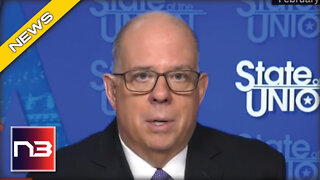 8:03
8:03
NextNewsNetwork
2 years agoIT BEGINS: Republican Governor Announces Potential Bid For President
36920 -
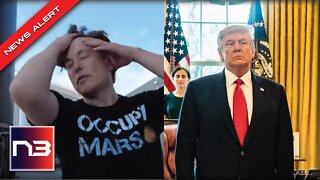 4:11
4:11
NextNewsNetwork
2 years agoElon Musk Wants a Republican for President! Wait Until You See Who…
1364 -
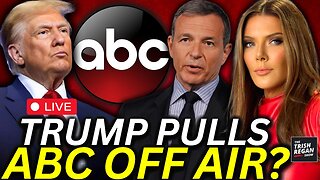 DVR
DVR
The Trish Regan Show
4 hours agoTrump‘s FCC Targets Disney CEO Bob Iger Over ABC News Alleged Misconduct
25.4K19 -
 1:48:19
1:48:19
The Quartering
5 hours agoElon Calls White People Dumb, Vivek Calls American's Lazy & Why Modern Christmas Movies Suck!
94.9K50 -
 2:08:42
2:08:42
The Dilley Show
6 hours ago $28.05 earnedH1B Visa Debate, Culture and More! w/Author Brenden Dilley 12/26/2024
80.2K22 -
 4:55:59
4:55:59
LumpyPotatoX2
8 hours agoThirsty Thursday on BOX Day - #RumbleGaming
84.3K5 -
 1:04:52
1:04:52
Geeks + Gamers
7 hours agoDisney RATIO'D on Christmas Day | Mufasa Embarrassed By Sonic 3
62.8K4 -
 8:27:46
8:27:46
Sm0k3m
11 hours agoPlaying games on Rumble
38.2K2 -
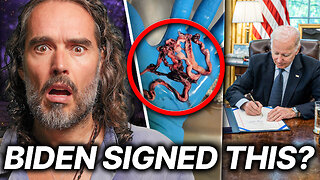 10:37
10:37
Russell Brand
2 days agoHow is this even allowed?
186K852 -
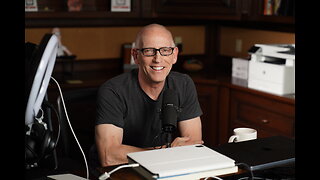 1:37:26
1:37:26
Real Coffee With Scott Adams
7 hours agoEpisode 2701 CWSA 12/26/24
102K91